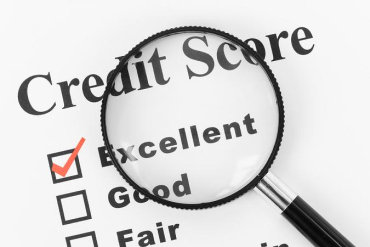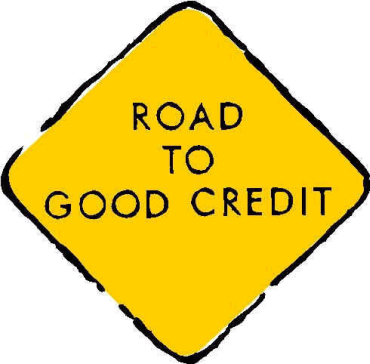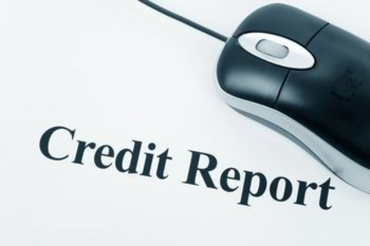
With Standard and Poor's, one of the world's top credit rating agencies, downgrading the United States from triple A, the highest rating, to AA+, on August 5, 2011, it is time to take a look at credit rating agencies and their functions.
A credit agency evaluates the credit worthiness of an issuer of specific types of debt, specifically, debt issued by a business enterprise such as a corporation or a government.
It is an evaluation made by credit rating agency of the debt issuers likelihood of default.
The credit rating represents the credit rating agency's evaluation of qualitative and quantitative information for a company or government; including non-public information obtained by the credit rating agencies analysts.
...

The credit rating is used by individuals and entities that purchase the bonds issued by companies and governments to determine the likelihood that the government will pay its bond obligations.
A poor credit rating indicates a credit rating agency's opinion that the company or government has a high risk of defaulting, based on the agency's analysis of the entity's history and analysis of long term economic prospects.
While there are many credit rating agencies, the big three are Standard & Poor's, Moody's Investor Service, and Fitch Ratings.
. . .

Third-ranked Fitch Ratings, which has about a 14 per cent market share, sometimes is used as an alternative to one of the other majors.
Uses of rating
Credit ratings are used by investors, issuers, investment banks, broker-dealers, and governments.
For investors, credit rating agencies increase the range of investment alternatives and provide independent, easy-to-use measurements of relative credit risk.
Issuers rely on credit ratings as an independent verification of their own credit-worthiness and the resultant value of the instruments they issue.
In most cases, a significant bond issuance must have at least one rating from a respected CRA for the issuance to be successful (without such a rating, the issuance may be undersubscribed or the price offered by investors too low for the issuer's purposes).
...

For example, under the Basel II agreement of the Basel Committee on Banking Supervision, banking regulators can allow banks to use credit ratings from certain approved CRAs when calculating their net capital reserve requirements.
Credit rating agencies may also play a key role in structured financial transactions.
Unlike a "typical" loan or bond issuance, where a borrower offers to pay a certain return on a loan, structured financial transactions may be viewed as either a series of loans with different characteristics, or else a number of small loans of a similar type packaged together into a series of "buckets" (with the "buckets" or different loans called "tranches").
...

Criticism
a) Credit rating agencies do not downgrade companies promptly enough.
b) Large corporate rating agencies have been criticized for having too familiar a relationship with company management, possibly opening themselves to undue influence or the vulnerability of being misled.
c) Credit Rating Agencies have made errors of judgment in rating structured products, particularly in assigning AAA ratings to structured debt, which in a large number of cases has subsequently been downgraded or defaulted.
d) Ratings agencies, in particular Fitch, Moody's and Standard and Poors have been implicitly allowed by governments to fill a quasi-regulatory role, but because they are for-profit entities their incentives may be misaligned.
Conflicts of interest often arise because the rating agencies, are paid by the companies issuing the securities.
...

e) Rating agencies have come under criticism for a narrow-minded view of government default from investors' perspective.
What is upgrade and downgrade?
An upgrade by a credit agency means that investors are certain or almost certain to receive the interest payments and return of capital they had expected and that are due to them.
An upgrade raises the security's price and brings down the issuer's cost of capital.
What that means is that holding debt bonds issued by the company/country is risk free or has less risk associated with it.
A rating downgrade is a reduction in the rating awarded to a nation's debt or equity security.
...

A downgrade normally is an indication to investors they are less certain to receive the interest payments and return of capital they had earlier expected and that are due to them.
A downgrade leads to a drop in the security's price and raises the issuer's cost of capital.
Credit rating agency Standard & Poor's downgraded the US government's 'AAA' sovereign credit rating by one notch to AA+.
S&P said that the outlook too is negative. This is a development which raises concerns that investors will lose confidence in its economy.
...

What does the rating mean?
Standard & Poor's and other agencies designate alphabets to denote the strength and weakness of a country's financial position.
Here is the S&Ps rating sytem:
AAA Extremely strong capacity to meet financial commitments. Highest Rating.
AA- Very strong capacity to meet financial commitments.
A- Strong capacity to meet financial commitments, but somewhat susceptible to adverse economic conditions and changes in circumstances.
BBB Adequate capacity to meet financial commitments, but more subject to adverse economic conditions.
BBB- Considered lowest investment grade by market participants.
...

BB Less vulnerable in the near-term but faces major ongoing uncertainties to adverse business, financial and economic conditions.
B More vulnerable to adverse business, financial and economic conditions but currently has the capacity to meet financial commitments.
CCC Currently vulnerable and dependent on favorable business, financial and economic conditions to meet financial commitments.
CC Currently highly vulnerable.
C Currently highly vulnerable obligations and other defined circumstances.
D Payment default on financial commitments.
Why credit rating matters?
While investors may use credit ratings in making investment decisions, ratings are not indications of investment merit.
In other words, the ratings are not buy, sell, or hold recommendations, or a measure of asset value.
...

Why are ratings so important?
Credit ratings may play a useful role in enabling corporations and governments to raise money in the capital markets.
Instead of taking a loan from a bank, these entities sometimes borrow money directly from investors by issuing bonds or notes.
Investors purchase these debt securities, such as municipal bonds, expecting to receive interest plus the return of their principal, either when the bond matures or as periodic payments.
...

Investors and other market participants may use the ratings as a screening device to match the relative credit risk of an issuer or individual debt issue with their own risk tolerance or credit risk guidelines in making investment and business decisions.
Why ratings change?
The reasons for ratings adjustments vary, and may be broadly related to overall shifts in the economy or business environment or more narrowly focused on circumstances affecting a specific industry, entity, or individual debt issue.
...

For instance, new competition or technology, beyond what might have been expected and factored into the ratings, may hurt a company's expected earnings performance, which could lead to one or more rating downgrades over time.
Growing or shrinking debt burdens, hefty capital spending requirements and regulatory changes may also trigger ratings changes.
What does a downgrade mean for you?
Downgrading means borrowing money becomes more risky.
It means higher interest rates in mortgages, student loans and credit cards.
Other countries that have been downgraded from AAA status have seen as much as a half percentage interest increase.
...

That might not seem like a lot but it can add up to real money.
A half percentage point increase on a 30-year, $100,000 mortgage, would mean you would have to pay nearly $11,000 more dollars over the course of the loan.
Downgrading can also contribute to an already troubled job market.
Businesses will expand less quickly because it's more expensive to expand, and unemployment rate will stay high longer as a result of this downgrade.
On average it takes countries between 5 and 15 years to regain top triple a status once it's lost.